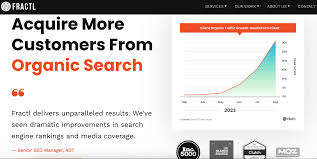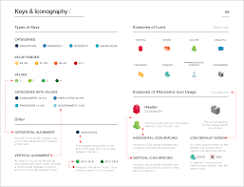Unlocking the Power of White Label Content Creation for Your Business
The Power of White Label Content Creation
In today’s digital age, content is king. It plays a crucial role in attracting and engaging audiences, building brand awareness, and driving conversions. However, creating high-quality content consistently can be a daunting task for many businesses.
Enter white label content creation – a solution that offers businesses the opportunity to outsource their content needs to experts while maintaining their brand identity. White label content creation involves hiring a third-party provider to produce content that is then rebranded and presented as the client’s own.
Benefits of White Label Content Creation:
- Cost-Effective: Outsourcing content creation can be more cost-effective than hiring an in-house team, saving businesses time and resources.
- Expertise: White label providers often have a team of experienced writers, designers, and marketers who can deliver high-quality content tailored to the client’s needs.
- Scalability: Businesses can easily scale their content production up or down based on their needs without the hassle of hiring or training new staff.
- Focus on Core Activities: By outsourcing content creation, businesses can focus on their core activities and strategic goals while leaving the content creation to professionals.
- Brand Consistency: White label providers work closely with clients to ensure that the produced content aligns with the brand voice and style guidelines.
How White Label Content Creation Works:
The process typically involves the following steps:
- Consultation: The client discusses their content requirements, goals, target audience, and brand guidelines with the white label provider.
- Content Creation: The white label provider creates customised content such as articles, blog posts, social media posts, videos, infographics, and more based on the client’s brief.
- Review & Revisions: The client reviews the produced content and provides feedback for any necessary revisions or edits before final approval.
- Delivery & Publication:The approved content is delivered to the client in ready-to-publish format for use across various channels.
In conclusion, white label content creation offers businesses a convenient and efficient way to meet their content needs without compromising on quality or brand integrity. By leveraging the expertise of external providers, businesses can enhance their online presence, engage their audience effectively, and drive business growth in today’s competitive digital landscape.
Exploring White Label Content Creation: Key Questions Answered for Businesses
- What is white label content creation?
- How does white label content creation benefit businesses?
- Why should a business consider using white label content creation services?
- What types of content can be created through white label services?
- How does white label content creation maintain brand consistency?
- Is white label content creation cost-effective for businesses?
- Can businesses scale their content production with white label services?
- How does the process of white label content creation work?
- What should businesses look for in a reliable white label content creation provider?
What is white label content creation?
White label content creation refers to the practice of outsourcing content production to a third-party provider who creates content on behalf of a client, allowing the client to rebrand and present the content as their own. This approach enables businesses to leverage the expertise of professional content creators without having to invest in an in-house team. White label content creation ensures that businesses receive high-quality, customised content that aligns with their brand identity and messaging, ultimately helping them enhance their online presence, engage their target audience, and achieve their communication goals effectively.
How does white label content creation benefit businesses?
White label content creation offers numerous benefits to businesses seeking to enhance their online presence and engage their target audience effectively. By outsourcing content creation to expert providers, businesses can access high-quality, customised content that aligns with their brand voice and style guidelines. This approach not only saves time and resources but also allows businesses to focus on core activities and strategic goals while leaving the content creation process in capable hands. Additionally, white label content creation enables businesses to scale their content production up or down based on their needs, ensuring flexibility and adaptability in today’s dynamic digital landscape. Ultimately, by leveraging the expertise of white label providers, businesses can maintain brand consistency, attract and retain customers, and drive business growth through compelling and relevant content.
Why should a business consider using white label content creation services?
Businesses should consider using white label content creation services for several compelling reasons. Firstly, outsourcing content creation to experts allows businesses to access a pool of experienced writers, designers, and marketers who can produce high-quality content tailored to their specific needs. This expertise ensures that the content aligns with the brand’s voice and style guidelines, maintaining consistency and professionalism across all communication channels. Additionally, white label services offer scalability, cost-effectiveness, and the ability to focus on core activities while leaving content creation in capable hands. By utilising white label content creation services, businesses can enhance their online presence, engage their target audience effectively, and ultimately drive business growth in a competitive digital landscape.
What types of content can be created through white label services?
Businesses can create a wide range of content through white label services, including articles, blog posts, social media posts, infographics, videos, whitepapers, case studies, email newsletters, and more. White label content creation providers offer a diverse set of content formats to cater to the specific needs and goals of their clients. Whether businesses require engaging blog content to drive traffic to their website or compelling videos to enhance their brand storytelling, white label services can deliver customised content solutions that resonate with the target audience and align with the brand’s voice and messaging.
How does white label content creation maintain brand consistency?
White label content creation maintains brand consistency by working closely with clients to understand their brand voice, style guidelines, and values. Providers ensure that the produced content aligns with the client’s brand identity through thorough research and collaboration. By incorporating the client’s unique tone, messaging, and visual elements into the content creation process, white label providers help maintain a cohesive brand image across all marketing channels. Regular communication and feedback loops between the client and the provider also play a crucial role in ensuring that the content reflects the brand accurately and resonates with the target audience. This meticulous attention to detail helps uphold brand consistency and strengthens brand recognition in the competitive digital landscape.
Is white label content creation cost-effective for businesses?
The question of whether white label content creation is cost-effective for businesses is a common one. White label content creation can indeed be a cost-effective solution for businesses looking to outsource their content needs. By partnering with a white label provider, businesses can access a team of experienced professionals without the overhead costs associated with hiring and training an in-house team. This approach allows businesses to save time and resources while still receiving high-quality, customised content that aligns with their brand identity and messaging. Overall, white label content creation offers a valuable opportunity for businesses to maximise their content marketing efforts in a cost-efficient manner.
Can businesses scale their content production with white label services?
Businesses can indeed scale their content production effectively by utilising white label services. White label content creation providers offer businesses the flexibility to increase or decrease their content output based on their needs and goals. By outsourcing content creation to experienced professionals, businesses can access a pool of skilled writers, designers, and marketers who can efficiently handle larger volumes of work without compromising on quality. This scalability feature allows businesses to adapt to changing demands, launch new campaigns swiftly, and maintain a consistent flow of engaging content across various platforms while focusing on their core activities and strategic objectives.
How does the process of white label content creation work?
The process of white label content creation involves businesses outsourcing their content needs to third-party providers who create customised content that is rebranded and presented as the client’s own. The process typically begins with a consultation where the client discusses their content requirements, goals, target audience, and brand guidelines with the white label provider. The provider then creates tailored content such as articles, blog posts, social media posts, videos, or infographics based on the client’s brief. The client reviews the content and provides feedback for any necessary revisions before final approval. Once approved, the content is delivered to the client in a ready-to-publish format for use across various channels. This collaborative approach ensures that businesses receive high-quality content that aligns with their brand voice and style guidelines while allowing them to focus on their core activities and strategic goals.
What should businesses look for in a reliable white label content creation provider?
When searching for a reliable white label content creation provider, businesses should consider several key factors to ensure they are partnering with the right service. Firstly, businesses should look for a provider with a proven track record of delivering high-quality content across various industries. Experience and expertise in content creation are crucial. Additionally, it is essential to choose a provider that offers customised solutions tailored to the specific needs and goals of the business. Clear communication, adherence to deadlines, and a strong understanding of the brand’s voice and style guidelines are also important aspects to consider when selecting a white label content creation partner. By prioritising these factors, businesses can find a reliable provider that helps them achieve their content marketing objectives effectively.








